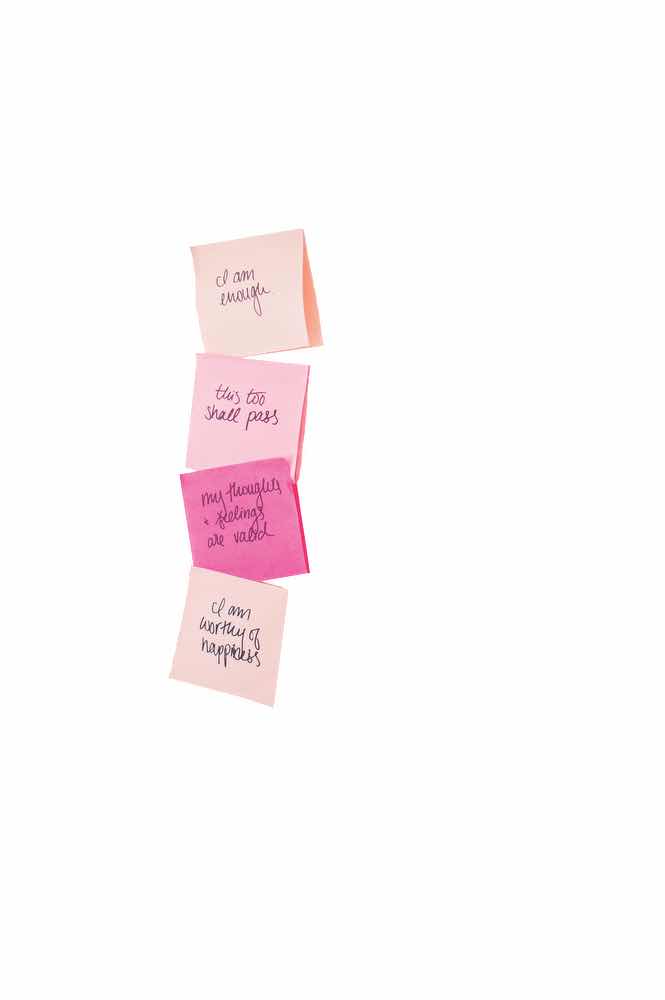
vie-magazine-sadie-sutton-hero
She Persisted podcast host Sadie Sutton | Photo by Emily Kim
She Persisted
January 2025
Gen Z Podcaster Sadie Sutton on Mental Health, Therapy, and Learning to Live Well
Interview by Morgan Power | Photography courtesy of Sadie Sutton
As we approach this new year focused on growth and well-being, the VIE team had the pleasure of sitting down with Sadie Sutton, host of the She Persisted podcast and a mental health guru, for a powerful conversation covering all things mental health. From navigating stress and anxiety to embracing self-confidence, Sutton’s knowledge offers tools and meaningful advice to help individuals prioritize their mental well-being in the year ahead.
In this deep dive, Sutton shares details from her journey, thoughts on how mental health connects with overall wellness, and beneficial strategies to prioritize mental health in 2025. Whether you want to build resilience, better manage your emotions, or understand the importance of mental health advocacy, this interview is a must-read for anyone looking to begin the year with clarity and confidence.
VIE: Tell us the story behind founding the She Persisted podcast. We would love to hear more about your story and what inspired you to create this outlet!
Sadie Sutton: I struggled a lot with my mental health as a teenager—specifically, severe depression and anxiety. I ended up receiving a year and a half of intensive treatment during my freshman and sophomore years of high school. I was acutely aware of how lucky I was to have access to such incredible resources, but I also knew not all teens needed that level of support. Additionally, many of the skills and insights I learned could have prevented a lot of my suffering. I was also incredibly hopeless when I started treatment. I didn’t believe I was capable of recovery and didn’t believe I had enough autonomy as a teen to make meaningful changes in my mental health. I quickly learned this wasn’t the case at all, and I wanted to create the resource I needed and be the voice I wished I’d heard when I was struggling. I started She Persisted at the end of my treatment journey in 2019 and have been releasing episodes ever since!
VIE: What is your creative process for coming up with topics to discuss on your podcast? What has been your favorite topic to touch on thus far?
SS: I am two hundred episodes into podcasting, so there are a few topics I haven’t touched on. I jumped at the chance to have experts on the podcast who can shed light on a specific area of mental health, such as residential care for eating disorders or positive outcomes after depression. I reach out to many guests whose research I come across or individuals I see talking about mental health on social media. My solo episodes are related to what I’m learning at Penn or the ways I’ve recently been taking care of my mental health. Last year, I did quite a few episodes on Positive Psychology while taking Dr. Martin Seligman’s class, and this year, you will be getting a “Grad School Applications 101” episode because that has been a big focus as of late!
VIE: How did you come up with the name She Persisted? How does this name align with what you speak about on the podcast?
SS: Most people associate “Nevertheless, she persisted” with the feminist movement, which adopted the phrase after its use in a senate hearing referring to Elizabeth Warren. I was oblivious to this significance when I first heard it at fifteen years old. For me, it held sentimental value due to a very formative experience during my time in treatment. While my parents were touring therapeutic boarding schools, they came across a small shop in Whitefish, Montana, that carried novelty shirts and mugs. Many had vulgar jokes on them, but my dad saw a T-shirt with “Nevertheless, She Persisted” on it. He called me immediately and said he was so struck by this saying and how synonymous it was with the journey I was on. He expressed how proud he was of me for how I was investing in my mental health and that despite the discomfort of doing the work, the challenge of being away from home, and the pain I was experiencing, I was persisting. When I started at the therapeutic boarding school, we were only allowed to communicate via written letters. In an homage to this saying, my dad and I signed every letter: “PS: Nevertheless, She Persisted.” It reminded me that his pride and support were unwavering, and my commitment to my mental health was steadfast. A year later, when I started the podcast She Persisted, it felt extremely fitting.
I still find it to be the perfect encapsulation of the podcast; despite the many challenges we go through with our mental health, we persist!
VIE: As a UPenn student studying psychology, what resources do you recommend that have worked best for you? How have your classroom experiences shaped the work you produce on your podcast?
SS: The further I get in my academic career, the more nuanced my understanding of mental health interventions becomes. It’s the age-old adage, “The more you know, the less you understand.” In the context of the podcast, this means I can have more confidence in the advice I’m sharing. My insights are not solely based on my lived experiences but also on a growing understanding of the literature. For individuals who want to pursue a career in psychology, I recommend getting involved in research as early as possible! Working in a lab and embedding yourself in the research community will give you incredible scaffolding and support to reach your goals.
VIE: What was it like sharing your experience within the “troubled teen industry” in the New York Times earlier this year? What do you wish more people knew about these institutions and boarding programs? How was this different from your experience at 3East at McLean Hospital?
SS: Surreal—so much of the troubled teen industry involves stripping power and autonomy from students in the name of “therapy.” To be able to speak out about my experience on such a prominent and impactful platform was incredibly validating, cathartic, and empowering. It’s crucial that parents especially understand that not all mental health treatment is created equal. Not all interventions have decades of research demonstrating their efficacy. I experienced this firsthand as a teen; I spent fourteen weeks at 3East at McLean Hospital—the leading program for Dialectical Behavioral Therapy (DBT) for adolescent girls. DBT is an evidence-based intervention, and the 3East team is one of the most compassionate, competent groups of clinicians in the field. I can’t recommend it highly enough. Conversely, I spent fourteen months at a therapeutic boarding school in Montana—Chrysalis. The program lacked proper oversight and didn’t adhere to an evidence-based model. They have since been sued for child sexual abuse and misconduct. I advise parents to look for a program attached to a university or large hospital. Note that research doesn’t support long-term treatment that removes teens from their home communities—short-term interventions can be highly effective. Similarly, ensure the program uses evidence-based interventions such as DBT or CBT. Unsilenced.org also has incredible resources for finding a good program and what red flags you should be aware of.
VIE: Tell us about the anonymous question submission on your website. We would love to hear more about this!
SS: Asking for help requires an incredible amount of vulnerability and can be quite daunting, especially when you don’t know the person. I want listeners to feel comfortable asking for advice about specific situations or things they’re struggling with, and many would prefer to do that anonymously. It’s also important to me to create episodes that align with what my audience is looking for support on. I am always open to topic requests!
VIE: Who have been some of your favorite guests on the podcast? What is the best piece of advice you have been given regarding wellness?
SS: That’s like asking me to choose a favorite child! I can’t pick one, but some of my favorite conversations were with Dr. David Yeager, Dr. Johnathan Rottenberg, Dr. Jeffrey Hall, Dr. Olivo & Dr. Seidler, Kristen Carder, and Britt Frank. One piece of advice that stands out is from Dr. Blaise Aguirre—the founding medical director of 3East and a Harvard Medical School professor. During our conversation in 2020, he told me, “Life is impermanent, and that impermanence will be on your side.” This has stuck with me ever since, and I go back to this mantra on a regular basis. It’s a reminder that no matter how much pain you’re in, no matter how intense the struggle that you’re experiencing is, it will pass. Everything in life is variable, and this is especially true of our emotions, thoughts, and behaviors. This has brought me a lot of peace when I’m feeling an intense emotion or going through a stressful period.
VIE: How do you recommend supporting friends or family who might be interested in bettering their mental health? How can you navigate being a compassionate listener while knowing the turning point to help connect this person to more supportive resources?
SS: One of the first things I learned in therapy was the oxygen mask principle. When you’re on the plane, they tell you to put your oxygen mask on before helping your child or those around you. This is because if you put on the child’s mask and you pass out, the child is breathing but unable to navigate the situation. You now have two people struggling. However, if you put your oxygen mask on first, even if the child passes out, you can put their oxygen mask on and get both parties off the plane safely. This is especially true for mental health—you can’t pour from an empty cup. So first, make sure you’re in a spot to support someone else’s struggle. Another thing to remember is you can only help someone as much as they want to help themselves. Listening, validating, and offering advice can go a long way, but it’s up to the other person to ask for help and implement your advice if applicable. I think the best thing you can do is validate—tell them it makes sense they feel the way they’re feeling—and offer resources. Lastly, people underestimate the value of just being a good friend. Knowing you can count on someone for a good laugh or a fun afternoon together is invaluable!
VIE: Tell us about DBT (Dialectical Behavior Therapy) and who you might recommend this to.
SS: Dialectical Behavioral Therapy (DBT) was developed by Marsha Linehan and her team at the University of Washington for individuals struggling with borderline personality disorder (BPD) and extreme suicidal ideation. Many therapists didn’t want these patients on their caseloads—they were highly suicidal and not super committed to the therapeutic process. Linehan found that when you validated their experience and said, “Your life sucks, I get it,” they would get angry and say, “So you can’t help me?” But when you told them, “Here is what you’re going to do to make your life better,” they also got mad and said, “This isn’t my fault; why do I have to fix it?” DBT is built on dialectics—the idea that two seemingly opposite things can be true at the same time. For instance, you can accept your current reality and work to change it. Or you might be trying your best but can also do better. Alongside these core philosophies, DBT has an extensive set of coping skills to teach clients. You learn how to regulate your emotions, be interpersonally effective, tolerate distress, and be more mindful. It gives you tactile skills to implement when distress inevitably arises; having those is a game changer. What also makes DBT unique is how effective it is. There’s a ton of research showing how consistently it works with individuals with BPD, depression, anxiety, and other mental illnesses.
VIE: Say someone is struggling with spiraling anxious or depressive thoughts. What are three of your favorite tools for getting into your body and processing your emotions in a healthy way rather than becoming avoidant or obsessive?
SS: The TIPP skill is incredible for a crisis. This skill decreases physiological distress so you can work through the mental side. The “T” in TIPP stands for temperature—you submerge your face in a bowl of ice water. It stimulates your mammalian diving reflex and immediately decreases your heart and breathing rate. You might have seen this on TikTok—it’s becoming super popular, and I love it!
Regarding thought spirals, avoidance will amplify your anxiety. It can be tough, but sitting with those thoughts is the best thing you can do. After you get out of a state of physical anxiety, follow that thought to see what the core belief is. Are you scared of rejection? Do you feel like you’re not good enough? What is the true fear? Understanding that takes a lot of the power away, and you can then check the facts and see if that fear is even accurate in that situation.
VIE: What are some ways you recommend raising awareness for mental health, especially breaking the stigma around teen and young adult mental health?
SS: I think how we individually speak about mental health has the potential to make the most significant impact. Model the vulnerability you hope to see in others, validate the experiences of your teens, and promote the resources others may need. Gen Z does an incredible job of this—we’re extremely vulnerable about our experiences, and it’s made us feel a lot less isolated with our mental health.
VIE: What do you hope to see for the future of the She Persisted podcast? What are your future goals and aspirations within the mental health space, especially post-graduation?
SS: I have so many goals for She Persisted. I am applying to Clinical Psychology PhD programs and plan to become a clinical psychologist. I want to continue to uplevel the insights and resources I bring to the community while speaking from my lived experiences. Of course, I will keep podcasting, but I also hope to write a book, launch a product, and create more widely accessible evidence-based resources for the community.
And a few rapid-fire questions to learn more about Sadie:
What’s your favorite stress-management hack as a student?
It’s all about your daily habits! I think your daily routines should keep you on an upward trajectory when you go on autopilot. Make it easy for yourself—surround yourself with supportive people, get enough sleep, work movement into your schedule, and put yourself in contexts that support your well-being.
One misconception about teen mental health that drives you crazy?
That Gen Z is “weak.” Vulnerability requires an incredible amount of strength, and I’ve yet to see a more vulnerable generation.
An undervalued quality that you wish more people would embody?
I have to say persistence! You’ve survived 100 percent of your worst days; you’re incredibly persistent!
What is the next place on your bucket list to travel to?
Anywhere with my family that requires a pit stop in San Francisco so I can see my dogs, Piper and Posey!
What do you love most about your job?
It’s unbelievably empowering! Hearing from listeners, being vulnerable to my community, and learning from podcast guests is an unparalleled experience.
A daily habit that has radically transformed your life?
I love getting ready in the morning! Doing my hair and makeup while looking outside my window brings me so much joy. It helps me start the day on a high note and get into a productive mentality.
Thank you!
xo, VIE
— V —
To hear more from Sadie Sutton, visit ShePersistedPodcast.com and follow @shepersistedpodcast on Instagram.
Share This Story!
KEEP UP WITH THE LATEST STORIES FROM VIE




















































































































































